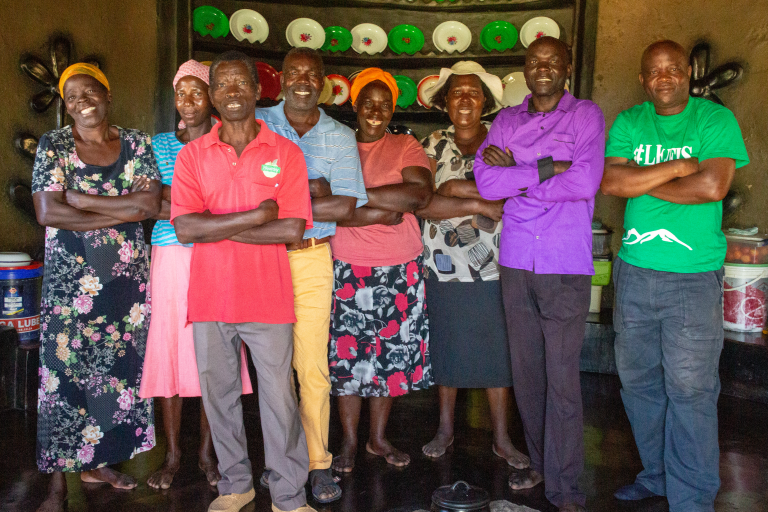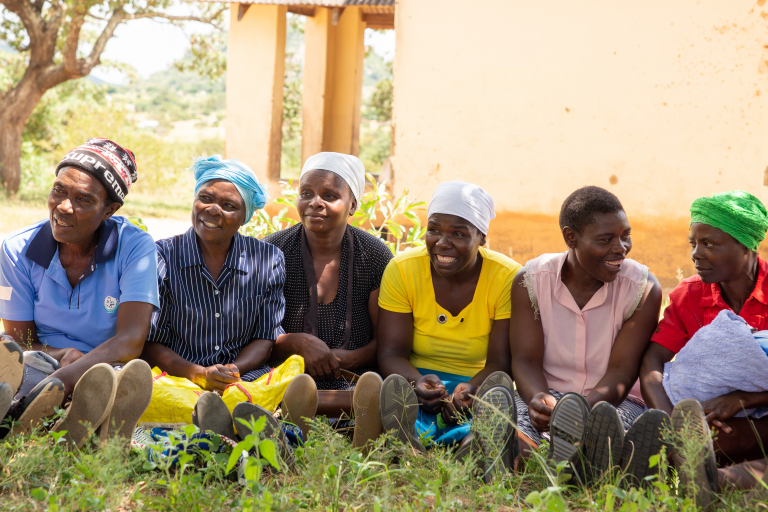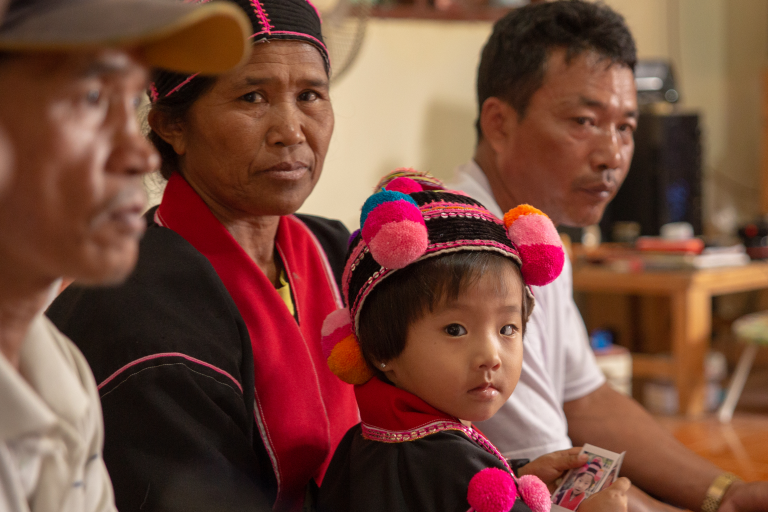
The principle of helping the poor ‘From Church, Through Church’ underpins CEDAR Fund’s work as a poverty alleviation organisation. Since its establishment, CEDAR has relied on the support of Hong Kong churches and Christian communities to collaborate with churches and Christian poverty relief organisations worldwide in implementing relief and poverty alleviation programmes. (In cases where no suitable local church partner is available, but a trusted individual who shares our core beliefs can oversee the project, CEDAR may also consider participation.) This principle is rooted in the Christian mission—to respond to suffering with Christ’s love and serve communities in need. While Christian engagement in community service is not inherently superior to that of non-religious groups, it is a calling for believers to bear witness to Christ in the world.
Local churches and Christian poverty relief organisations are deeply rooted in their communities. They understand local needs and have established strong resource networks, giving them advantages over external aid organisations in mobilising, planning, and implementing projects. Moreover, local Christian groups can accompany communities in the long run, fostering sustainable transformation. Recognising this, CEDAR generally does not launch independent projects abroad but instead supports local Christian partners in serving the poor and benefiting the communities they work with.
We are grateful for the support of churches and Christian communities through prayer, donations, and standing with those in poverty.
Principles for Project Initiation and Conclusion
As a Christian poverty alleviation organisation, CEDAR is committed to serving the most vulnerable and impoverished. When initiating projects, we consider not only the immediate needs of local communities but also their social and cultural contexts. Our approach is based on community needs assessments and baseline surveys to determine the most appropriate intervention strategies. We also evaluate whether a poverty alleviation programme incorporates community participation to ensure sufficient local engagement. This includes:
- Actively mobilising local human resources.
- Maintaining transparency and fairness in beneficiary selection.
- Providing channels for community members to give feedback on project operations.
- Organising volunteer teams to support project implementation.
- Ensuring that experiences gained can be shared and adapted for other communities.

CEDAR recognises that sustainable development and transformation require the involvement and ownership of local stakeholders. These community participation elements are key in evaluating the effectiveness of our projects. If, after thorough assessment, we determine that the supported community has gained sufficient capacity for self-sufficiency and sustainable development (e.g. community groups can operate independently, local churches and Christian organisations can provide long-term service and support, and beneficiaries can contribute to community development), we will work with our partners to establish an ‘exit strategy,’ returning project ownership to the community.
Funding Principles

CEDAR follows a ‘fund first, raise later’ approach. We allocate funds for relief and development projects upfront, transferring the necessary resources to partner churches or Christian relief organisations so that those in need can receive timely assistance. This ensures that urgent relief and community development are not delayed by fluctuations in fundraising. At the same time, we encourage believers to remember the poor and support them through donations. If donations exceed the allocated amount, we can distribute additional funds according to local needs, enabling more impoverished individuals to receive aid.
Relief and Rehabilitation Principles
Disaster relief and rehabilitation efforts require appropriate responses at different stages, as each phase impacts the next. These efforts demand a commitment to long-term service and full dedication from the organisations and personnel involved, particularly in preparing for future disasters.
- Close Collaboration with Local Partners
- From assessing and understanding the disaster situation to executing relief and reconstruction efforts, CEDAR relies on local staff or partners to take the lead. Local partners have a deep understanding of community needs and have already established strong resource networks, enabling them to deliver effective aid and reach even the most vulnerable groups in remote areas.
- Prioritising Vulnerable Groups
- In both natural and human-made disasters, the most affected groups often include the poor, elderly, disabled, ethnic minorities, women, and children. CEDAR prioritises their needs in all relief and reconstruction efforts.
- Ensuring Aid Reaches the Affected People Directly
- CEDAR staff or local partners personally oversee the distribution of relief supplies, ensuring that recipients register and sign for the aid. All our partners are long-term Christian groups serving local communities, which helps prevent misallocation or exclusion of those in urgent need.
- Procuring Relief Supplies Locally or from Nearby Regions
- Local partners are familiar with market conditions and supply sources. Unless exceptional circumstances arise, we prioritise purchasing relief goods locally or from nearby areas. This not only reduces transportation costs but also supports the local economy.
- Rehabilitation Work
- Focusing on Community and Social Development
- For disaster survivors, rebuilding a community is not just about restoring livelihoods and daily life—it is also about emotional healing and family restoration. CEDAR’s partners have long-established relationships with local communities and can develop rehabilitation projects tailored to their unique cultural and economic contexts. Upholding the principle of holistic care, we also consider survivors’ physical, emotional, and spiritual needs.
- Disaster Preparedness and Response Training
- Post-disaster recovery and reconstruction offer opportunities to reorganise communities and strengthen their resilience against future disasters. To minimise future harm, CEDAR:
- Provides disaster response and preparedness training for local partners.
- Empowers local communities to protect themselves by learning preventive measures and preparing for potential disasters. This includes two key components: Mitigation – Introducing new measures to reduce disaster impact; and Preparation – Developing better disaster response plans within the community.
- Post-disaster recovery and reconstruction offer opportunities to reorganise communities and strengthen their resilience against future disasters. To minimise future harm, CEDAR:
- Focusing on Community and Social Development
We encourage you to donate to impoverished communities and help bring transformation to their lives.

